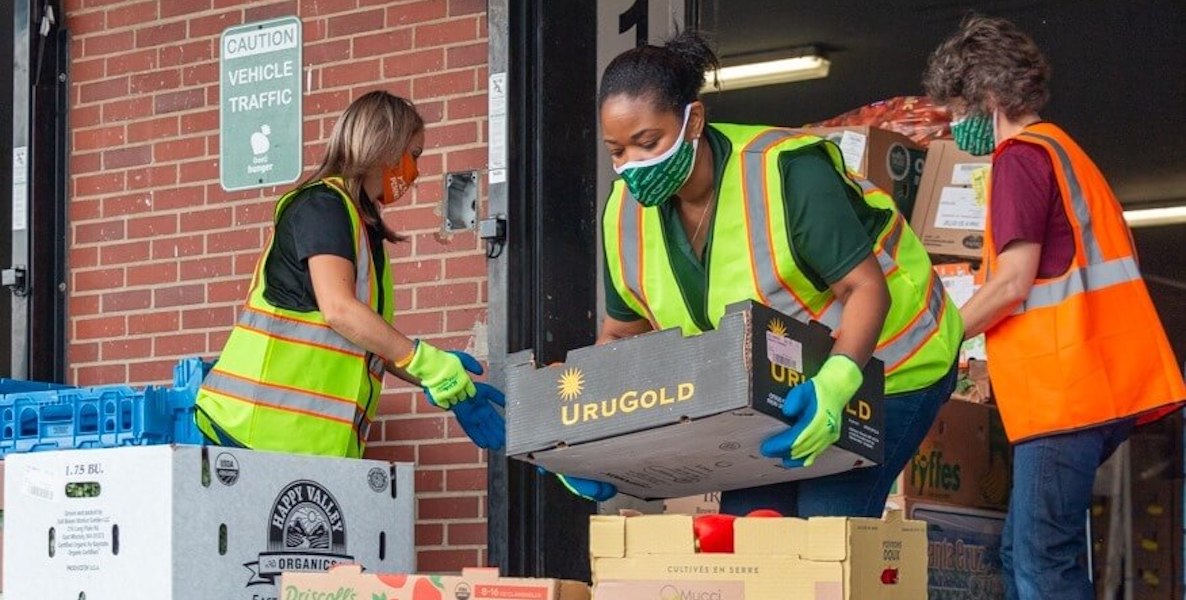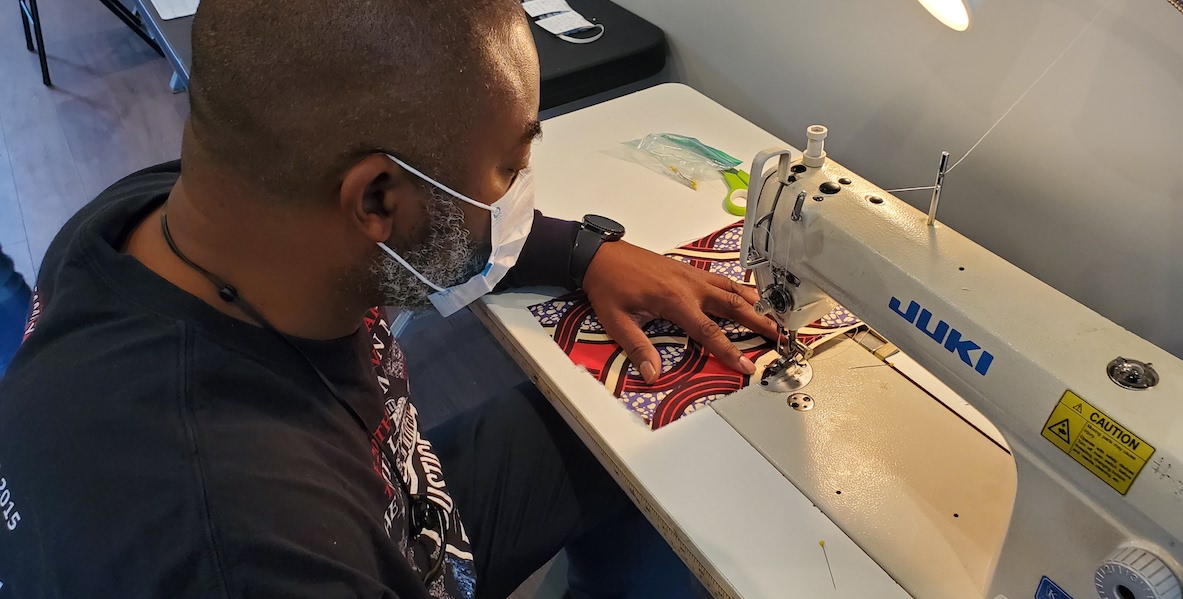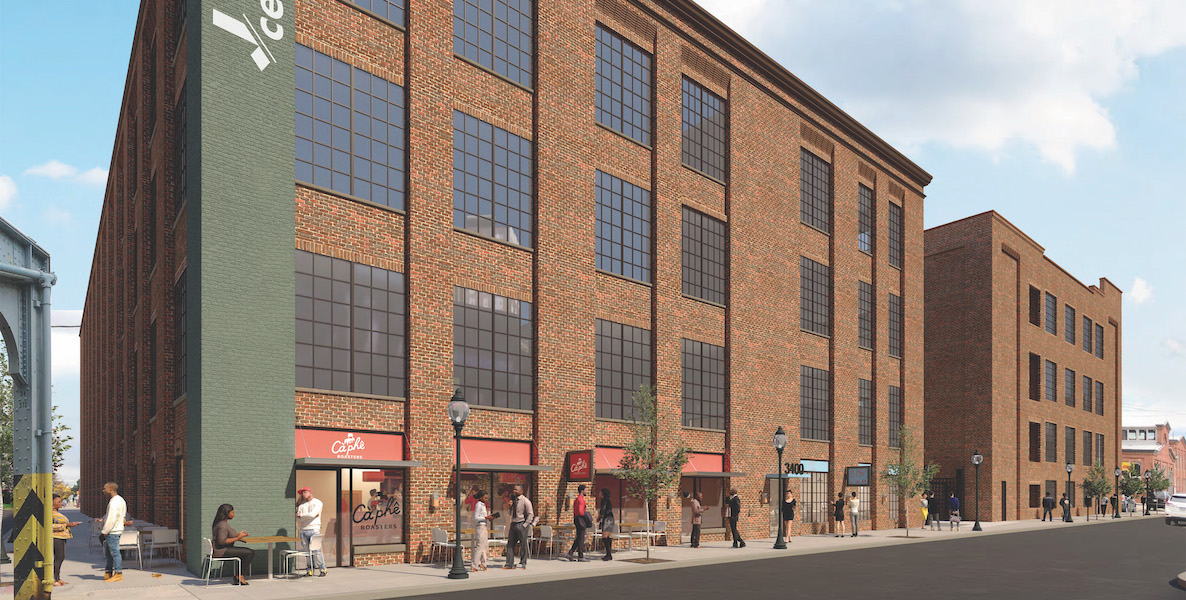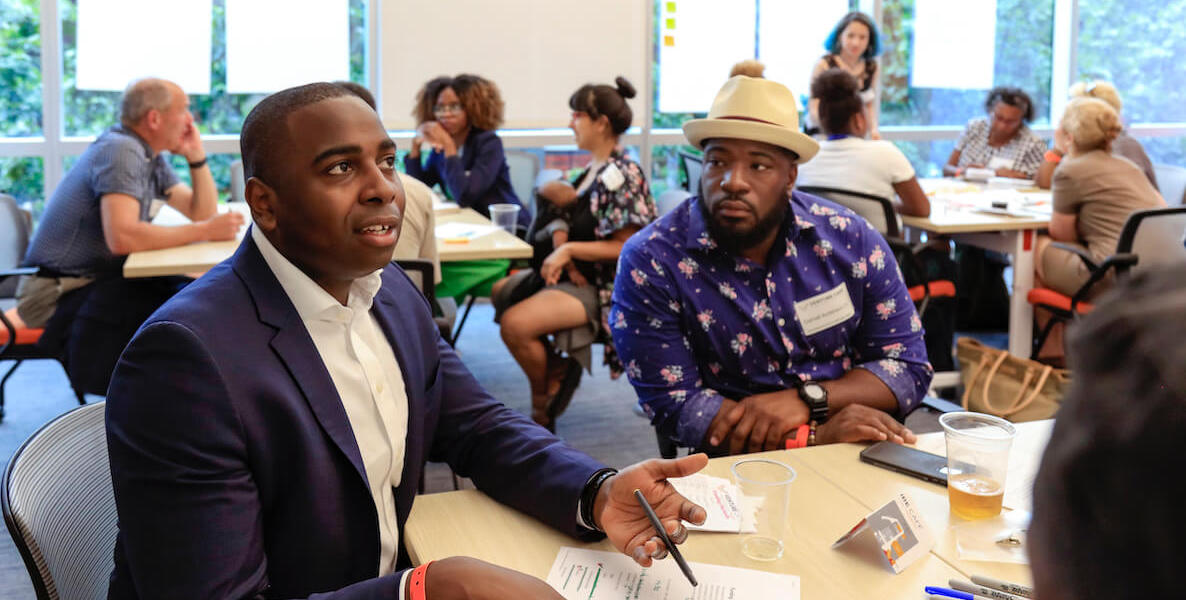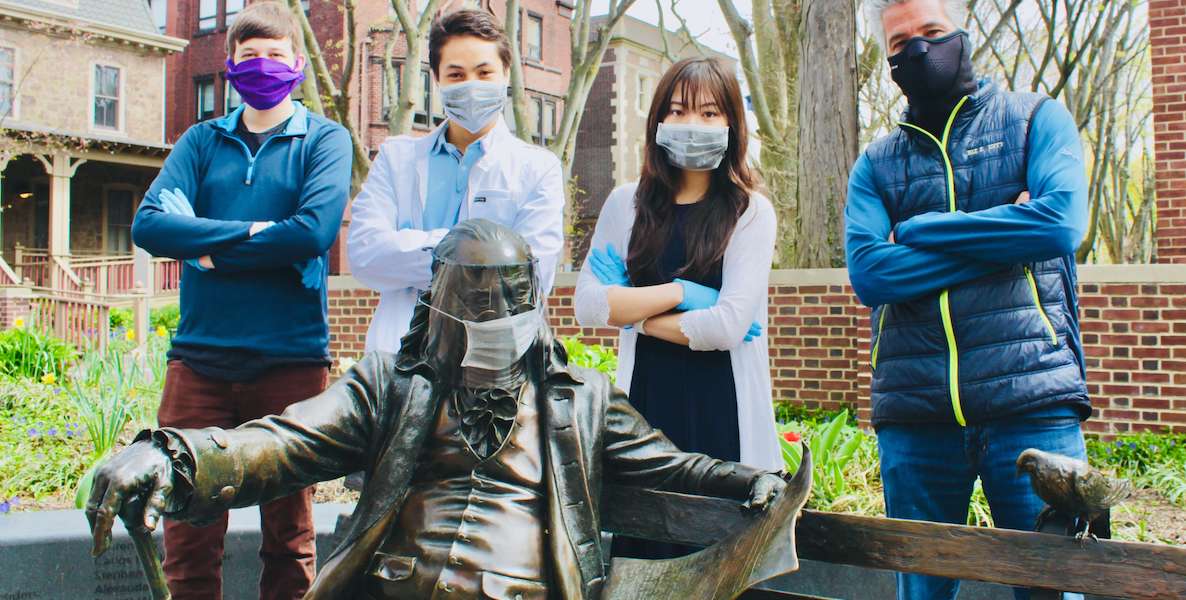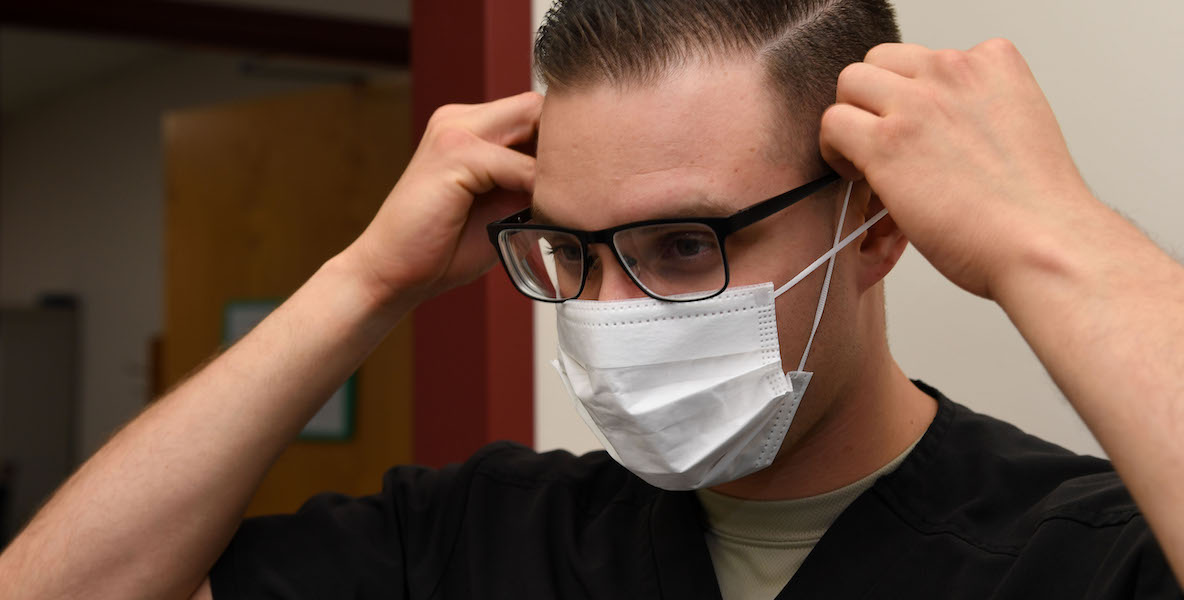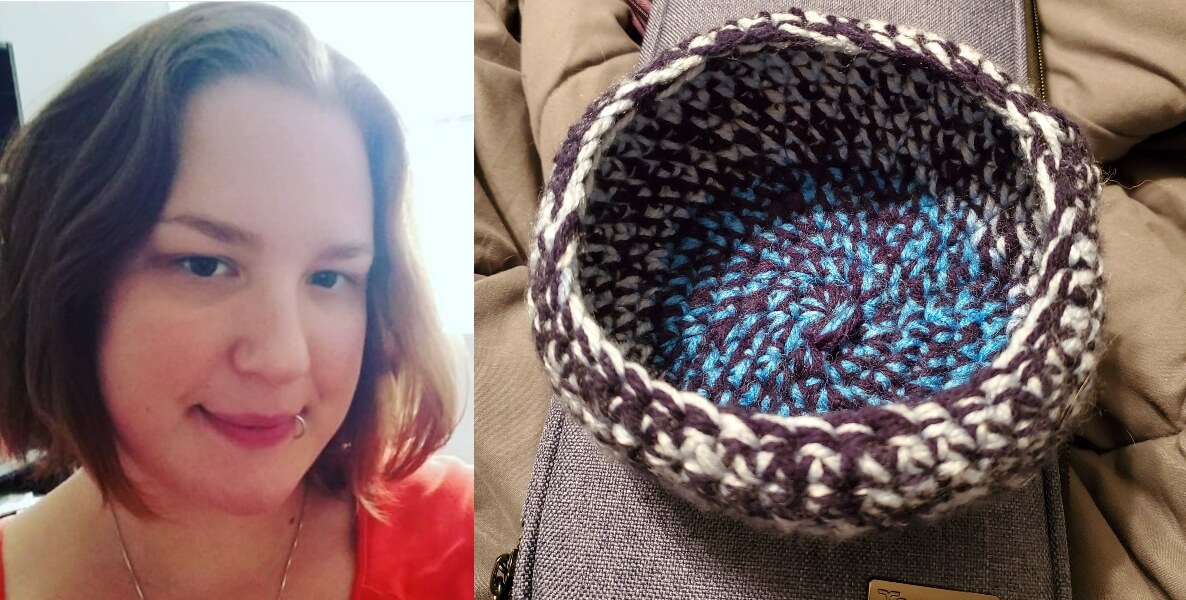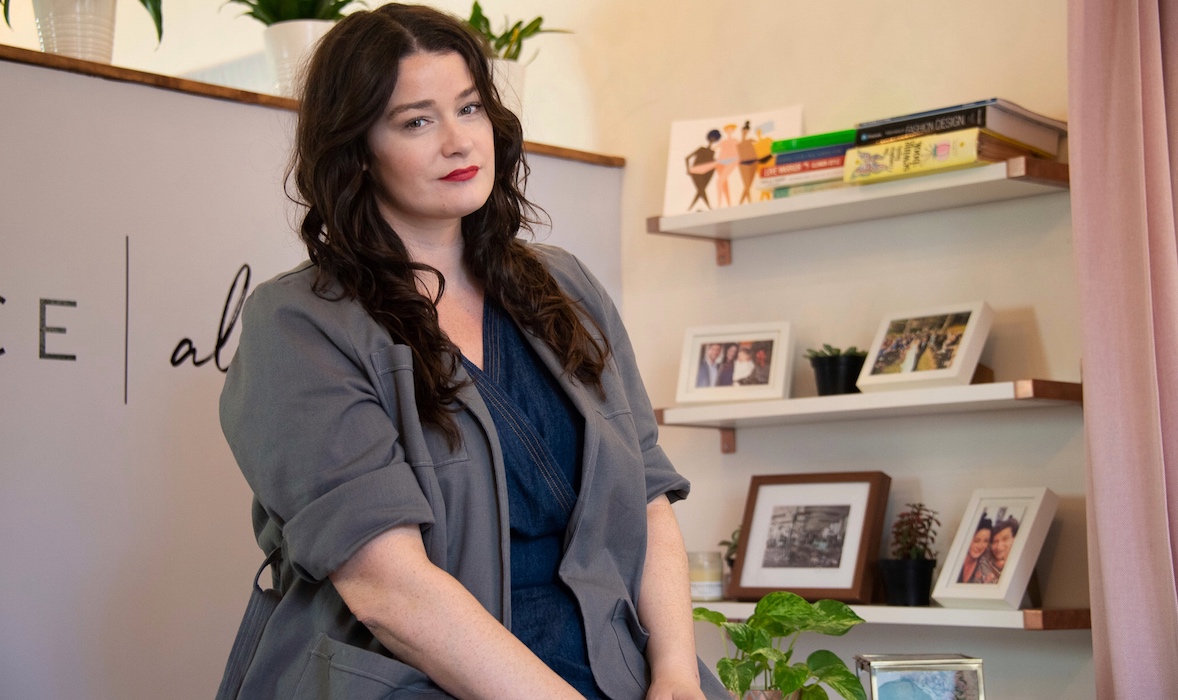The word ujima, in Swahili, means “collective work and responsibility.”
Not only is it the name of Leon Caldwell’s real estate development firm, it’s also the guiding principle in the work he and his business partner, Melissa “Mel” Lamarre, do through both Ujima Developers and Community Transformation Partners, the nonprofit community development corporation (CDC) Caldwell launched in 2019 to use real estate as a vehicle for creating change in neighborhoods.
Support the projectDo Something
So far, they’ve made and distributed 500 masks, and are on track to donate 5,000 by the end of August.
“Some people spend too much time dwelling on the problem—we skip to start planning the solution,” says Lamarre.
Crossing paths
Caldwell was not always in real estate or community development. For years, he was a professor of psychology at various U.S. universities. But he felt a pull to use his understanding of the human psyche to help communities reclaim their neighborhoods, and dismantle the racist structures that had been responsible for their decline in Philly.
He created Ujima Developers in 2016, and the firm now has $15 million in residential and commercial projects under way in Philly and Baltimore, with a focus on age-friendly village developments.
“The work that we’re doing is really around transforming neighborhoods and communities to restore them back to places where people can thrive,” he says. “Historically, there were Philadelphia neighborhoods where African-American families were prosperous, and we kind of lost that way through a lot of structural and systemic racist policies. Now that we’re aware of those policies, we have to dismantle them and play a part in not only disrupting what we know has been destructive for our communities, but [also] constructing new models that are useful.”
Lamarre, a New York transplant, is the founder of Mel’s Butter Blends, a line of natural skin and hair products. She has a consulting company to help nonprofits and small businesses strategize for their growth, and she created the Blactivate Network, a series of marketplace and business-support events for Black-owned businesses. She also happens to have worked in real estate in Brooklyn.
The two met last November at Venture Cafe, the weekly networking event held at the Science Center. Lamarre was giving out samples of her products, when she and Caldwell got to talking. Realizing how much they had in common, Caldwell ultimately hired Lamarre to be director of operations at both of his endeavors.
Creating space for community
Among CTP’s upcoming projects is a community makerspace in West Philly; called STEAMIE, it will invite neighbors to come and explore science, tech and the arts. The goal is to reach high school grads who haven’t committed to future plans and local community members who are exploring other career paths to try out different opportunities and learn new skills in a risk-free environment before they commit to, say, paying tuition to enroll in college or embarking on a new career path. They hope to scale it to other cities, as well.
As part of the prep for it, Caldwell purchased five sewing machines. The machines had been sitting in storage, waiting for STEAMIE’s future opening in late 2021, when the pandemic hit and Lamarre, troubled by reports about the lack of mask access and the disproportionate toll of the virus on communities of color, had an aha moment:
Why not get the machines out of storage and in front of people who want to sew, or learn to sew, to create masks for the community?
It wouldn’t just be a way to generate masks, but also to teach a new skill, if only at a basic level, to aspiring fashion designers, mask-makers, and hobbyists.
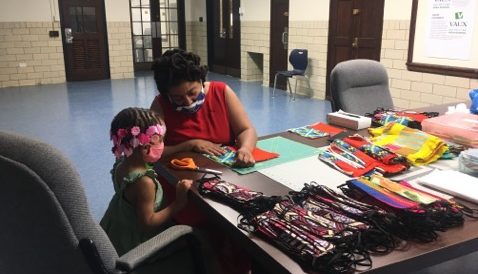
Tapping into their extensive network of contacts, Caldwell and Lamarre turned their idea into reality: They secured funding from partners like TD Bank, LISC Philly, and AARP; they secured space, first in The Infinity Center and then in Vaux Big Picture High School; they purchased fabric from Fabrics Queen, a local Black-owned textile store; and they hired Millie Hiibel, costume director of Opera Philadelphia, to teach rookies how to sew. They’ve partnered with PHA and local food-distribution sites to arrange for deliveries of the masks they produce.
Since opening their doors in May, they’ve had 20 volunteers sewing masks at Vaux; they’re open to setting up pop-up locations elsewhere around the city, too.
During the pandemicMORE WAYS TO HELP
A full-circle operation
Caldwell thinks of his approach—to real estate development, to community transformation, and to Mask On! Philly—as connecting the dots. And he sees Mask On! Philly as a full-circle operation.
“The fact that people will have the option to be healthier with a mask; using African fabrics from a Black-owned store; bringing in volunteers and teaching them the skill of sewing and giving people the opportunity to use our machines. There’s a circular nature to what we’re doing as a responsible community with intention,” he says.
The team is calling on volunteers—individuals who want to learn to sew or help prepare the materials, anyone who can help deliver masks to recipient organizations, groups of three to five coworkers—to join their mission. “The more volunteers we have, the more masks we can make and the more targeted we can be in where they go,” Caldwell says.
“My thing is that if you have time to complain about something, you have enough time to help fix it,” Lamarre says.
Adds Caldwell: “The sooner we realize how interdependent we are, the easier it will be for us to make a collective action. When all of our communities do well, the city does well.”
It all comes back to ujima.
Correction: An earlier version of this piece misstated one of Mask On!’s sponsors; it is LISC Philly.
Want more? Check out these stories about other locals getting PPE to those in need.



